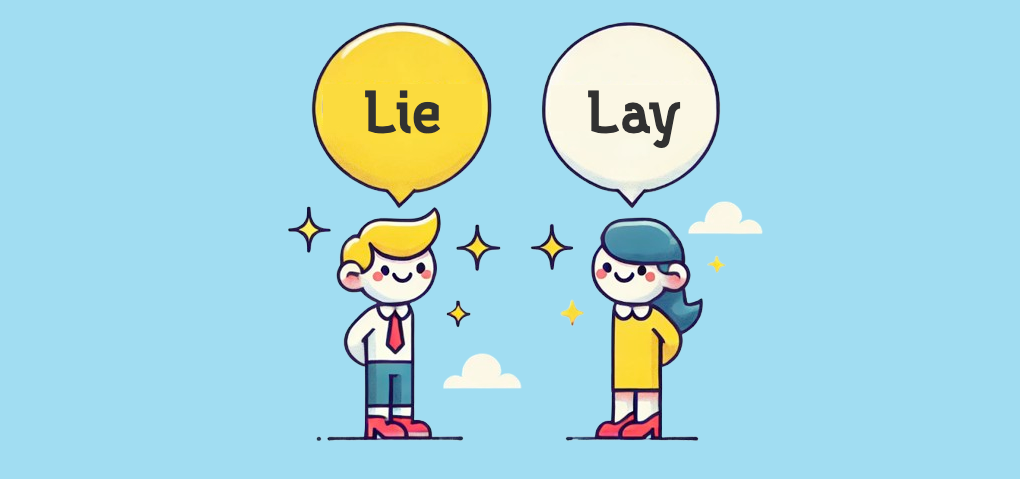
"Lie" vs "Lay": What's the Difference?
Learn the difference between lie and lay. Find out when to use each verb with clear examples, conjugations, and practical tips for correct usage.
Confused about whether to use "lie" or "lay"? You're not alone. This is one of the most challenging word pairs in English, but we'll break it down into simple, easy-to-understand rules.
Key Differences Between Lie and Lay
The fundamental difference:
- Lie: To recline or rest (no direct object needed)
- Lay: To put or place something (requires a direct object)
What Does Lie Mean?
"Lie" means to recline or be in a horizontal position. It doesn't need an object after it.
Present: lie Past: lay Past Participle: lain
Example: "I lie down for a nap every afternoon."
What Does Lay Mean?
"Lay" means to put or place something somewhere. It always needs an object.
Present: lay Past: laid Past Participle: laid
Example: "I lay the book on the table."
Examples of Lie and Lay in Use
| Form | Lie (to recline) | Lay (to place) |
|---|---|---|
| Present | I lie down | I lay the blanket down |
| Past | Yesterday, I lay down | Yesterday, I laid the blanket down |
| Past Participle | I have lain down | I have laid the blanket down |
| Present Participle | I am lying down | I am laying the blanket down |
Quick Tips to Remember the Difference
- If there's no object, use "lie"
- If you're putting something somewhere, use "lay"
- Ask yourself: "Am I placing something?" If yes, use lay
- Think: People lie down, but they lay things down
FAQ About Lie and Lay
Q: What about the phrase "laying down"? A: This is correct only if you're placing something. "I'm laying down the rules" is correct, but "I'm laying down for a nap" is incorrect.
Q: Why is the past tense of "lie" the same as the present tense of "lay"? A: It's just one of English's irregularities that makes these verbs tricky. The past tense of "lie" is "lay," while the present tense of "lay" is also "lay."
Q: What about when referring to telling untruths? A: The verb "to lie" (meaning to tell an untruth) is different. Its forms are: lie, lied, lied.
Conclusion
Remember the key distinction: lie is something you do, while lay is something you do to something else. When in doubt, ask yourself if there's an object being placed somewhere.
Other Commonly Confused Words
Join the Waiting List
By joining the waiting list, you'll be among the first to access our upcoming Chrome extension and standalone app, designed to improve your writing.